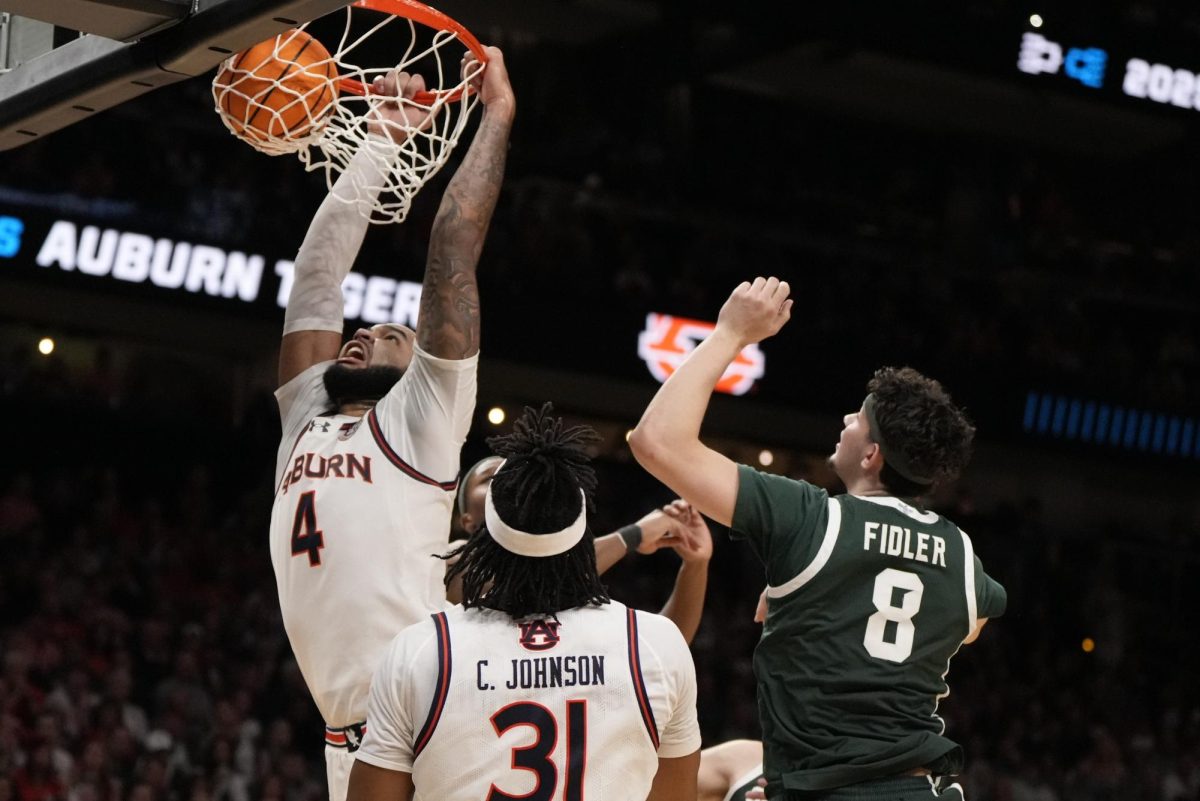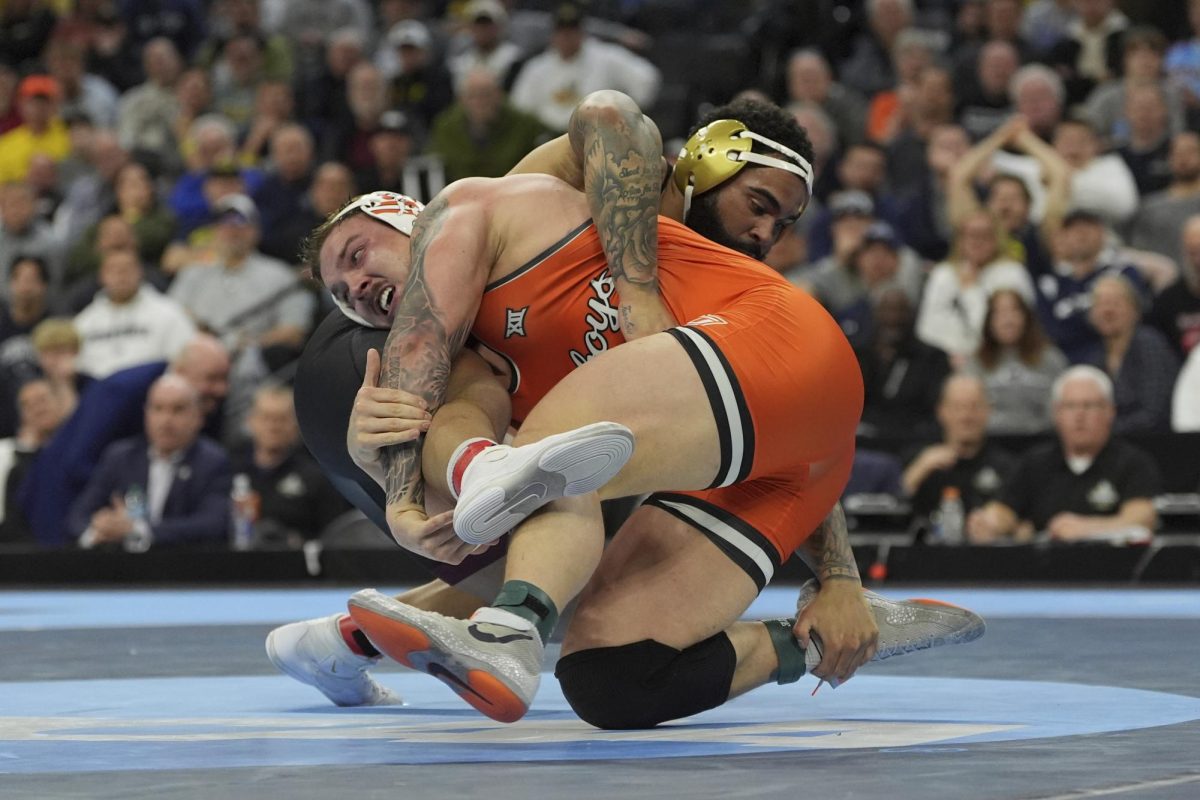Women’s gymnastics was one of the most anticipated events heading into Paris this summer with the return of the most decorated gymnast of all time, Simone Biles, and then-reigning Olympic all-around champion, Suni Lee, (after a battle with kidney disease) dominating the discourse. It was a successful Olympics for Biles and Lee — Biles with a return to the top of the podium in the all-around and vault and Lee with a bronze in the all-around — and for the American women, who once again won the team all-around gold medal. However, a controversy during the floor event finals ended up taking over America’s news feeds.
A third member of the women’s team, Jordan Chiles, has been one of the most talked about athletes following the outcome of the floor final. According to the official Olympic website, the final podium as of Oct. 4 for the women’s floor final is as follows: Rebecca Andrade of Brazil with gold, Biles with silver and Romania’s Ana Bărbosu with bronze.
However, on the day of competition, Chiles was announced as the bronze medalist and received her medal at the medal ceremony following the final. This followed a complicated process that consisted of both Bărbosu and fellow Romanian Sabrina Maneca-Voinea scoring a 13.700 and Chiles originally scoring a 13.666, landing her in sixth place. However, Chiles’ coaching team, Cecile and Laurent Landi, submitted an inquiry for her leap pass and Chiles ended up receiving credit for the skill, which added 0.100 to her score, placing her above Bărbosu and Maneca-Voinea at a 13.766.
That is where the story should have ended. Chiles and her teammates did the mandatory rounds on American morning television, they made TikToks with Sesame Street’s Elmo and Chiles even went to Disneyland after her win. However, while Chiles was on her victory tour, the Romanian Olympic and Sports Committee sent a letter of protest to the International Gymnastics Federation (FIG), Romanian Prime Minister Marcel Ciolacu posted on Facebook stating that he would not be attending the closing ceremonies and the Romanian Gymnastics Federation filed a petition to the Court of Arbitration of Sport (CAS). CAS released a decision on Aug. 10, stating that Chiles’ original score of 13.666 would be reinstated and Bărbosu was now the bronze medalist due to Landi’s appeal coming four seconds after the one-minute allotted window for appeals.
On Aug. 11, the International Olympic Committee (IOC) announced that it would be asking Chiles to return her medal and award one to Bărbosu. This went against a request made by the Romanian Gymnastics Federation that Chiles, Bărbosu and Maneca-Voinea all be awarded medals. The U.S. Olympic & Paralympic Committee (USOPC) announced on that same day that they would be filing an appeal, which was rejected on Aug. 12 by CAS due to the fact that “their rules do not allow for an arbitral award to be reconsidered even when conclusive new evidence is presented. In the midst of some of the biggest news to come out of the Paris Olympics, Chiles announced that she would be taking time off of social media via an Instagram story.
The process by which Chiles was stripped of her medal (which, for context, is extremely rare in cases that don’t involve a doping scandal) has drawn ire among social media users. It was discovered that the head of the three-person CAS panel that overturned Chiles’ inquiry was Dr. Hamid G. Gharavi, who has previously represented Romania in arbitration cases. CAS’s handling of the case itself also prompted criticism as the U.S. Olympic & Paralympic Committee (USOPC) and USA Gymnastics (USAG) revealed that information about the case was sent to incorrect email addresses and they were not given the proper amount of time to introduce evidence.
On Sept. 16, Chiles filed a new appeal, this time to the Swiss Federal Tribunal, asking for the court to overturn the previous CAS ruling.
CAS reopened the original case, taking into consideration the evidence acquired from a documentary crew who was recording the floor finals. A week later, on Sept. 24, Chiles and USAG filed separate appeals asking for the case to be reopened and for CAS to consider video evidence that would prove that the inquiry was submitted within the allotted one-minute time period.
“The evidence in question – footage from a documentary crew that was recording the women’s gymnastics floor finals – proves that CAS’ prior decision rested on a critical factual error that was compounded by the fact that CAS allowed Chiles less than a day to prepare for her hearing,” Chiles’ attorney said to CNN.
Now, Chiles, USAG and the gymnastics world will wait for the Swiss Federal Tribunal to make a decision, which will either uphold CAS’ original ruling or send the case back, where Chiles would again have to wait for a decision to be made.









